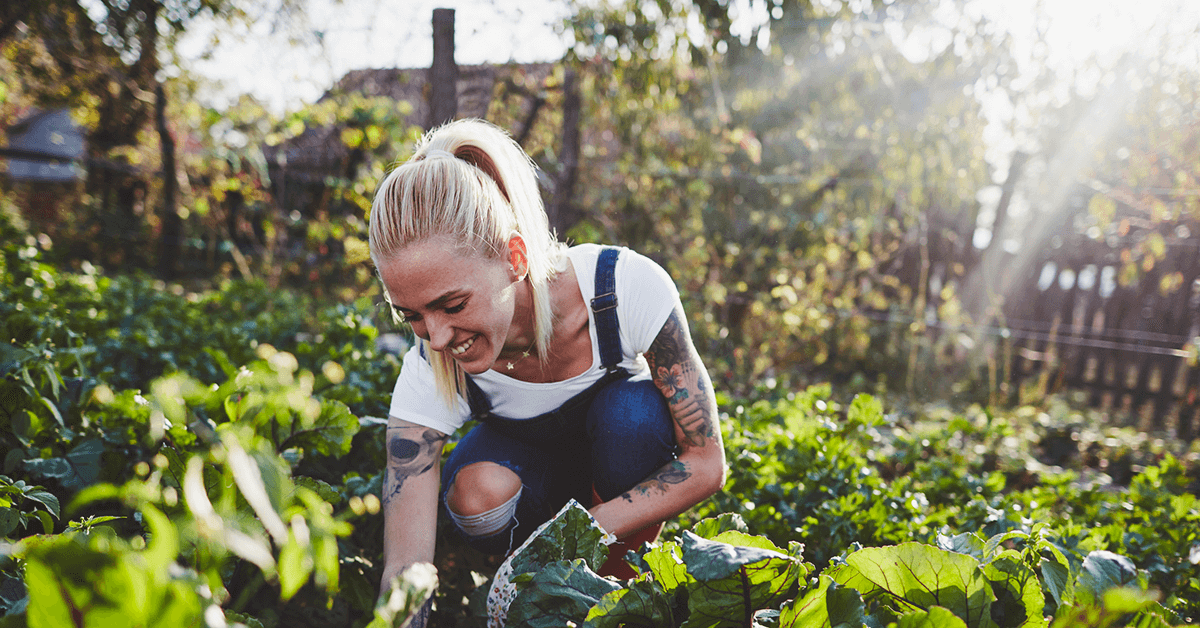
5 Common Ordinances to Look Out For When Starting a Vegetable Garden
The coronavirus has certainly changed the grocery store experience for many of us. Shelves are emptier and food staples we relied on for recipes aren’t always available. While the nation is far from experiencing a food crisis like that of World War II, which had the government encouraging victory gardens to free up food for soldiers, home gardens are making a comeback with homeowners.
Before you pick up your shovel and hoe and get to tilling in an effort to bolster your local food supply and perform your civic duty, you’ll want to check your town’s local ordinances to make sure your victory garden isn’t in violation of zoning laws or city codes.
Nearly all cities and towns have ordinances in place dictating certain elements of the appearance of your home and yard. Vegetable gardens often come with their own set of rules and living in an urban area or a subdivision with a Homeowners Association (HOA) may bring with it even more restrictions.
While every town is different, here are five common gardening areas where you’re likely to encounter ordinances.
One of the most common restrictions placed on home gardens is the location: front yard gardens in particular. Florida couple Hermine Ricketts and Tom Carroll, recently won a 5 year battle for the right to grow vegetables in their front yard. In 2013 the couple was forced to dig up the front yard garden they had been growing for 17 years.
While their battle resulted in legislation protecting the right of Floridians to grow vegetables and fruit on their property, their struggle is not unique. Just this month, Quentin Nguyen of Falcon Heights, Minnesota was forced to stop his plans to create “Q’s Victory Garden” in his front yard. The City Council voted on May 13th, to ban growing vegetables and herbs in front yards for one year.
It is best to check local ordinances surrounding the placement of your garden before you get to work to avoid fines and the extra work of removing and replanting your vegetables.
Composting has been growing in popularity, and in Vermont, it’s about to become law. According to the Burlington Free Press, “As of July 1, 2020, the last phase of Act 148 will become law, which bans the last sector of food scraps from landfills — the ones from your kitchen’s garbage pail — in favor of mandatory composting.” But before you start composting at home, be sure to check your town’s laws and ordinances.
Many composting codes are in place to maintain the health and safety of the household doing the composting and the surrounding community. Codes dictating the cleanliness and content of composting bins reduce the smell and are often aimed at avoiding dangerous wildlife from dining on your bin’s contents.
Adding a fence around your garden is a great way to keep animals, and kids, from trampling your plants or eating your veggies before you. Not only do you need to worry about the height and materials used in the construction of your fence (regulations for each vary from town to town) you’ll also need to pay special attention to the location.
Your fence needs to be entirely on your property, or you may find yourself in trouble with your neighbors as well as your town. And during social distancing, when your neighbors are some of the only people you have a chance to interact with, it may be wise to keep those relationships solid.
If you live in a drought-prone area or are experiencing a seasonal drought, your town may place restrictions on your water usage. This means, watering your freshly planted victory garden may come with a fine. In Cobb County, Georgia Drought Response plans come with specific guidelines for avoiding water waste and increasing fines for continued violations.
In the spirit of community, and due to the rise in unemployment, some victory gardeners are selling their bounties to their neighbors and local communities. But, before you start listing your spoils for sale, consider that your town may require you to obtain a license first. Laws vary by state and town and are also influenced by where and how much you plan to sell.
Many states do not require a license to sell uncut food wholesale directly to a purchaser. However, cottage laws apply to foods that have been prepared or altered in some way, like your famous homemade salsa, so be sure to check your local ordinances regarding licensing, and the most updated business regulations and social distancing guidelines for your area before you start selling any of your homegrown goodies.
Gardening is a productive and practical way to fill your time while you shelter-in-place. Just be sure your garden follows your town’s local ordinances before you invest the time and money into it..
Time to Focus on Affordable Housing
Taxes on real estate are not the answer. Sign the petition calling on Congress to address our country’s housing shortage.





